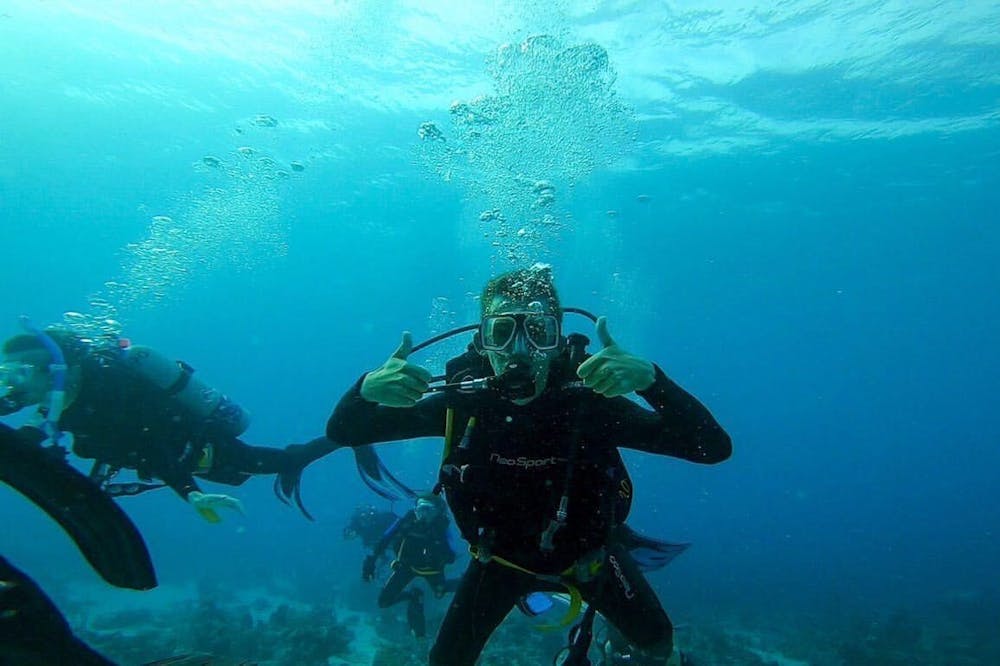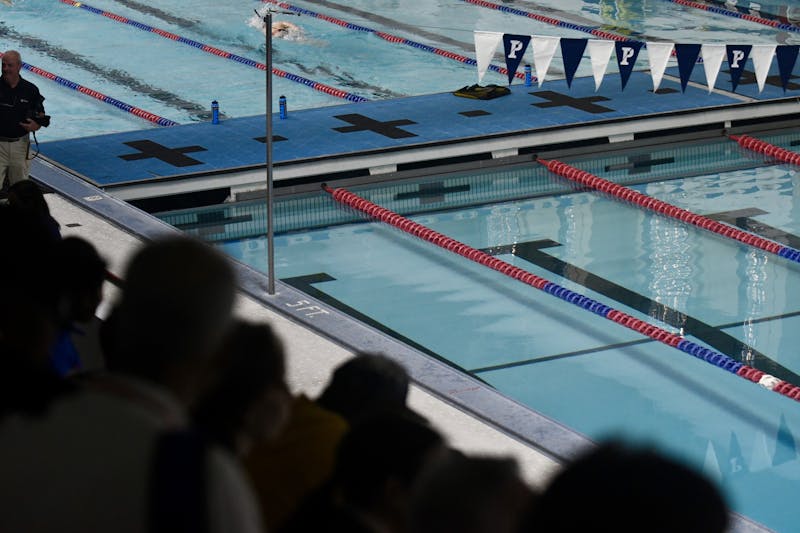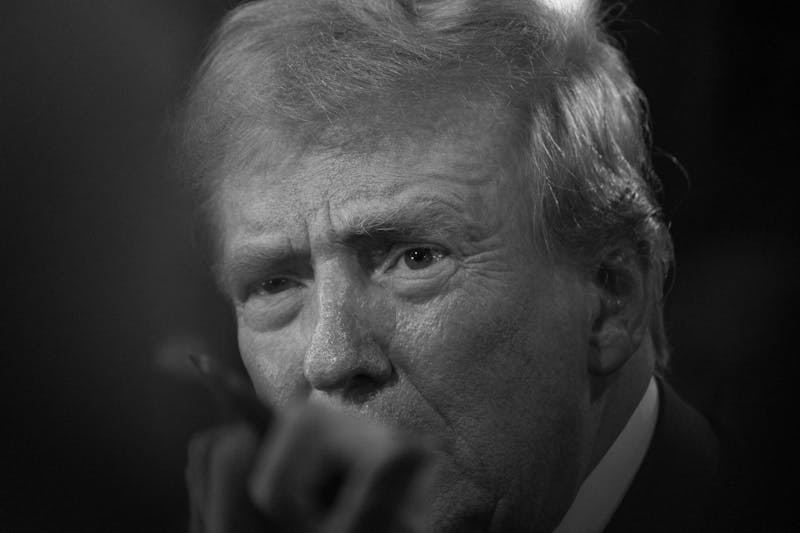
During Engineer first year Jared Caspar's gap year, he traveled to the Bahamas, where he took a marine science course through a program called Forfar (Photo from Jared Caspar).
Engineering first year Jared Caspar never planned to take a gap year. In August 2020, he had already found a roommate, finalized his class schedule, and even picked out his dorm posters. But once Penn moved all classes online for the fall 2020 semester to prevent the spread of COVID-19, his mindset changed.
Caspar was one of approximately 200 students admitted to the Class of 2024 who chose to take a gap year. Many students who chose to defer enrollment at Penn said they made the decision to avoid taking classes online due to the COVID-19 pandemic. Students traveled internationally, worked with refugees, and held jobs in factories, butcher shops, and more during their gap years.
In 2020, the number of first-year students who opted to take a gap year increased from around 50 to approximately 200, a 300% increase, former Dean of Admissions Eric Furda previously told The Daily Pennsylvanian.
With no concrete plans, Caspar drove to Colorado and volunteered as a park ranger for Golden Gate Canyon State Park. Living on his own, Caspar was able to go on many hikes, including a 16-mile solo trip.
“Not having to be constrained by anything and being able to make my own schedule was really cool,” he said.
After that, Caspar traveled to the Bahamas, where he took a marine science course through a gap year program called Forfar.
“We were literally in a classroom, but we would be doing things like dissecting lionfish,” he said.
Still not done, Caspar then traveled to Cape Town, where he created and taught a class in digital literacy to refugees while working for the NGO Scalabrini Centre of Cape Town, which fosters the integration of migrants, refugees, and South Africans into the local community.
“When [refugees] come to Cape Town, they find out that it's really hard to get a job and that [they] aren't very well received,” he said. “Our goal was to empower refugees to be able to apply for jobs.”
Similarly, Wharton and Engineering first year Rose Wang took a gap year in part due to COVID-19, and spent the last year buying a series of one-way plane tickets.
Wang's gap year consisted of interning for software startups virtually and in California, working for a pollinator garden in Hawaii, traveling to Europe, teaching English in Morocco, and learning to butcher pigs in France.
Wang said one of the craziest parts of her gap year was climbing Mount Toubkal — the tallest mountain in North Africa.
She financed the gap year entirely by herself, using the money she made from her internships during the first half of the year to fund her traveling during the second half.
Like Caspar and Wang, College first year Alana Newberger said COVID-19 was a contributing factor to their decision to take a gap year.
“Learning online would not have worked for me,” they said.
Newberger spent part of their gap year working on the factory floor of the 3D printing additive manufacturing company Fast Radius.
“I got this really interesting perspective of what goes into making all the things I use all the time, and how much labor that is,” they said. “That connection to labor reframed a lot of how I interact with society.”
College first year Claire Batchelor spent her gap year working with architectural photographer Jane Beiles in her home state of Connecticut.
Batchelor traveled to each shoot location with Beiles, helped set up her equipment, and did Photoshop work. Batchelor worked on various projects including Birds by the Billions with The New York Times.
Batchelor also worked as a cashier for the clothing brand Abercrombie near her home, where she practiced her Spanish with other employees.
Caspar said his gap year was “transformative,” and that he believes the experiences will benefit him for the rest of his life.
“I feel like I have heightened priorities,” he said. “I kind of know what matters to me and what doesn't.”
Caspar said he has noticed that gap year students tend to place less importance on grades than other students since arriving at Penn. He added that most of his friends are gap year students, and that he was much less nervous about adapting to the social aspect of college after taking his gap year.
“I went to a different country, lived with 17 boys that I didn't know, and then was with 40 kids I didn't know from all over the world,” he said. “If you can do something like that, you can definitely come to Penn, move to the Quad, and be OK.”
After taking a gap year, Batchelor agreed that she felt better prepared for college.
“I’m in a better headspace now,” she said. “I'm more responsible and mature and have a better idea of why I want to study.”
Wang said she feels like her gap year turned her into a more interesting person.
“I spent so much of my life working on academics, working on extracurriculars, and working on getting into college,” she said. “It gave me the confidence that I can turn my life into what I want it to be.”
The Daily Pennsylvanian is an independent, student-run newspaper. Please consider making a donation to support the coverage that shapes the University. Your generosity ensures a future of strong journalism at Penn.
Donate






